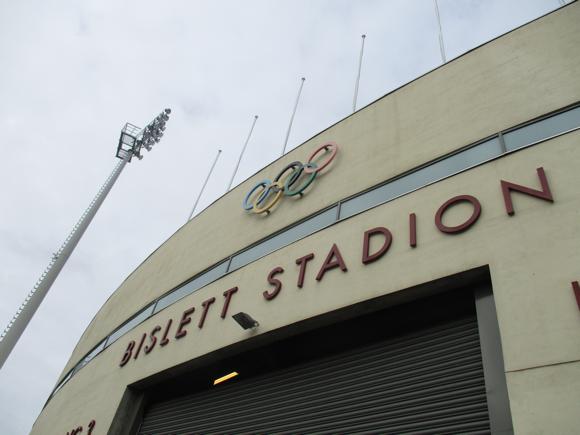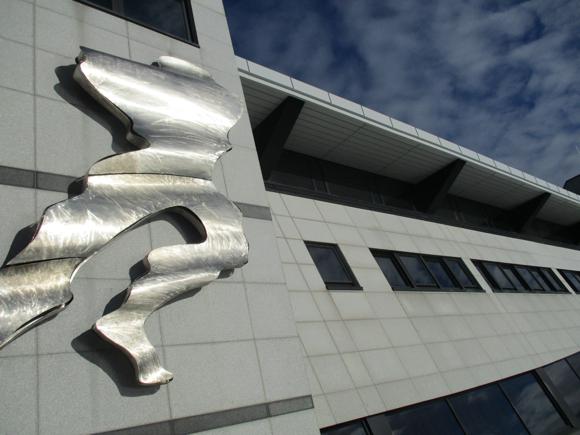A fan’s guide – the club from early doors to today
Known across Europe, where the club has enjoyed such triumphs, as Rosenborg Trondheim and at home as RBK, Norway’s record champions are back winning titles after a five-year hiatus.
Based at the Lerkendal Stadion, Rosenborg Ballklub are best known for their exploits under legendary coach Nils Arne Eggen. Ten of 13 consecutive championships were claimed under his command, a 23-year stretch in five separate stints.
The locally born Eggen was also a player for ‘Troillongan’ (‘The Troll Children’), at the very start of Rosenborg’s climb to the top in 1960.
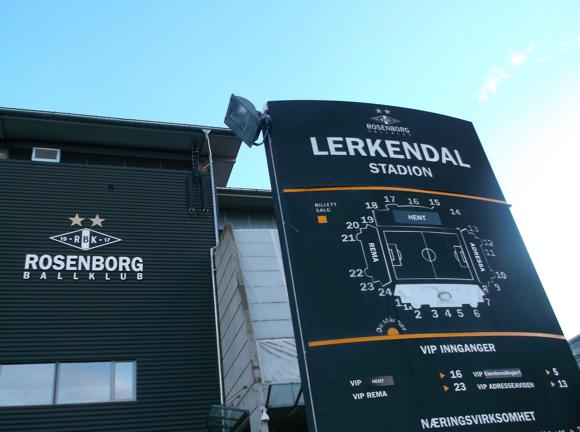
Formed as Sportsklubben Odd by youngsters from the residential district of Rosenborg in 1917, the club was named in honour of the multi-trophied team from Skien. A change to Rosenborg Ballklub allowed participation in the Norwegian Cup.
Initially overshadowed by other Trondheim teams such as Kvik and Freidig, RBK fielded an exciting young team in 1960, won promotion to the top flight and made the final of the Norwegian Cup, ironically against Odd of Skien. Holding their former heroes to a 3-3 draw after extra-time, Rosenborg’s 19-year-old Eldar Hansen scoring all three. Hansen then got two more in the replay that also went the distance, ending in a 3-2 win and RBK’s first major silverware.
A year later, Hansen scored for Norway against the USSR in Moscow. Although they failed to qualify for the 1962 World Cup, Norway made significant progress in the 1980s with Hansen as FA president.
The next stars at the Lerkendal were strike duo Odd Iversen, father of later Spurs forward Steffen, and Harald Sunde. Their goals helped RBK gain a first title in 1967 and win it back in 1969, after which record scorer Iversen went to Racing Mechelen.
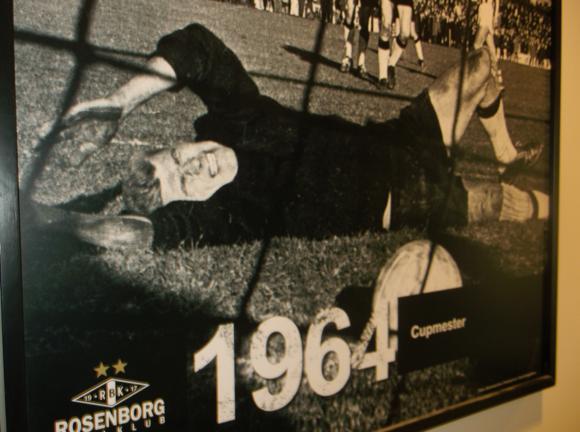
Rosenborg set their mark in Europe with a draw at Rapid Vienna and a 1-0 win over Terry Paine’s Southampton thanks to a goal from Harald Sunde. He then followed Iversen to Mechelen, and former RBK defender Nils Arne Eggen took over as coach.
Another title win in 1971 was followed by a 4-1 win over Lierse in Europe, Eggen’s Rosenborg falling to a late eight-minute hat-trick in the away leg. RBK also kept Celtic to a 2-1 scoreline in Glasgow and Hibs to 3-2 in Trondheim, although the Edinburgh then stomped Rosenborg 9-1, despite the return of Sunde and Iversen.
There would be no more European football for 12 years. Under former Norwegian international striker Arne Dokken, Rosenborg won the title in 1985 but it was the return of Eggen three years later that instigated the club’s rise to unprecedented heights.
Behind the scenes, encouraged by FA boss Eldar Hansen, the club formed a sports company headed by Dokken. Able to raise funds and sponsorship as professionals, RBK signed the likes of winger Jahn Ivar ‘Mini’ Jakobsen and midfielder Ørjan Berg from Bodø/Glimt. With experienced international Ola By Rise in goal, Rosenborg won a swashbuckling double in 1988, repeating the feat in 1990 and 1992.

With stalwart midfielder Roar Strand now a mainstay and later Celtic striker Harald Brattbakk scoring a goal a game, and welcoming the return of Mini Jakobsen from Germany, RBK were simply unstoppable in Norway. Their 13-title run, surely never to be matched, was achieved with prolific attacking football. The 1994 Tippeligaen was won with 70 goals in 22 games. In 1997, it was 87 in 26.
But the real story was in Europe. Already well versed at the European game, in 1994 Rosenborg took a Bebeto-led Deportivo to extra-time in La Coruña. A year, they reached the group stage of the Champions League a year later thanks to the 3-0 spanking of Besiktas at the Lerkendal, where they then beat Blackburn 2-1 and Legia Warsaw 4-0.
In 1996, Strand and company went one better, doing the double over IFK Gothenburg and causing shockwaves across Europe with a 2-1 win over Milan, Baresi, Maldini, Baggio and all, at the San Siro. As well as knocking out a tournament favourite, it set up a quarter-final with Juventus. Going 1-0 up at the Lerkendal, Rosenborg quickly succumbed to a Christian Vieri equaliser before Zinedine Zidane did the rest in Turin.
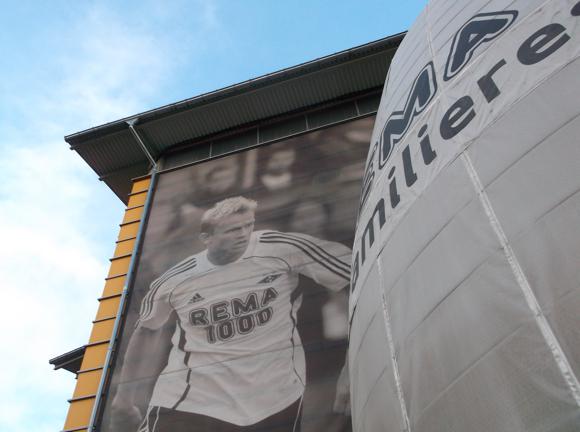
In total, RBK made the group stages 11 times, highlights including a 5-1 win over Olympiacos, 2-0 over Real Madrid, and 3-0 over Galatasaray and Borussia Dortmund. Paris Saint-Germain, Celtic and Valencia were also turned over at the Lerkendal. Few relished a trip to Trondheim of a freezing November evening.
Eggen bowed out in 2002. In 2004, Rosenborg finished on the same points and goal difference as Vålerenga, but has scored 12 more. A year later, Trondheim were still top scorers, but their crown had slipped, 12 defeats condemning the club to the long-forgotten ignominy of a relegation fight.
It proved a minor blip, as in 2006 Rosenborg won a 20th title, goals coming from a returning Steffen Iversen. With Iversen still prolific, RBK welcomed back Nils Arne Eggen as coach during the 2010 campaign to claim another championship, this time unbeaten.
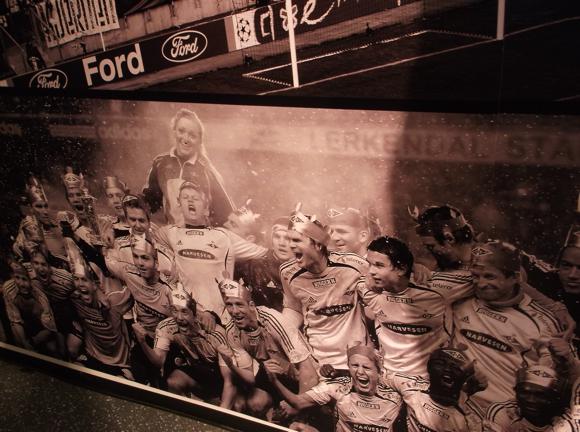
Failing to make the group stage of the Champions League after an away-goals defeat to FC Copenhagen, Rosenborg began a series of runs in the Europa League, putting Rapid Vienna and Legia Warsaw to the sword at the Lerkendal.
Back in Norway, Trondheim trod water – even lesser local rivals Ranheim knocked Rosenborg out of the cup in 2014. Kåre ‘Brutttern’ Ingebrigtsen, a midfielder in the silverware-laden Eggen era, came in as coach, upped fitness levels and RBK won the league by 12 points in 2015.
With top scorer Alexander Søderlund sold to Saint-Étienne, Danish international Christian Gytkjaer stepped in and Rosenborg retained the title in 2016 with a 15-point margin.
Winning a 25th title in 2017 and after two straight doubles, RBK have been wise to keep Ingebrigtsen at the helm, ex-Arsenal striker Nicklas Bendtner replacing his fellow Dane Gytkjaer. Compatriot Mike Jensen leads the midfield while 20-year-old left back Alex Gersbach, a member of Australia’s side at the 2017 Confederations Cup, is now a regular.

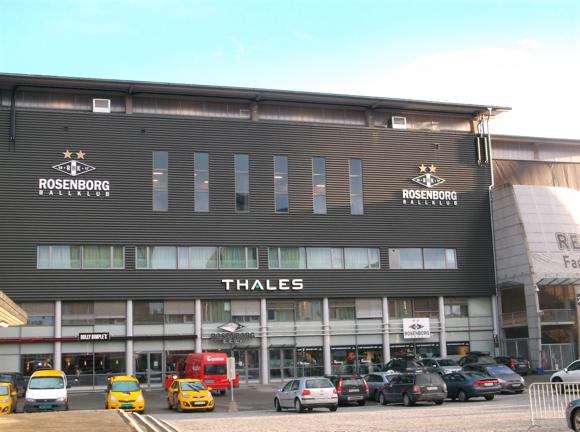

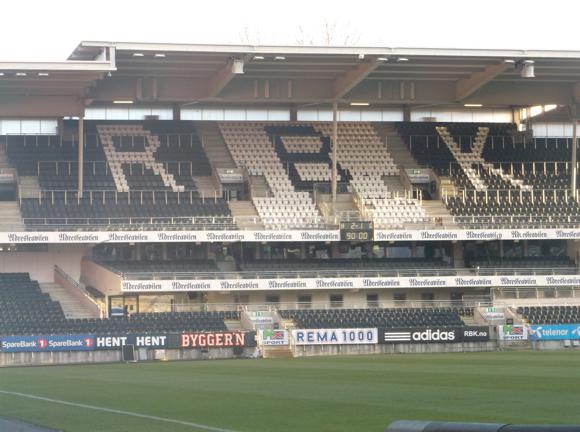


Stadium Guide
The field of dreams – and the stands around it
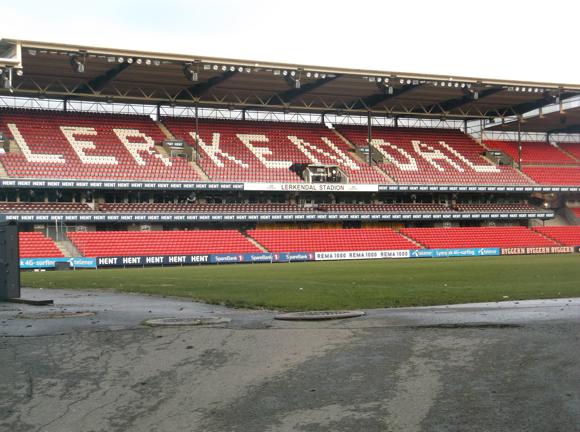



Norway’s second largest football stadium has been the scene of many greatest triumphs in the international arena. Located in the district of the same name, close to a sprawling complex of colleges, the Lerkendal Stadion developed as Rosenborg gained domestic dominance then European success.
Built in 1947 for football and athletics, the Lerkendal only welcomed Rosenborg a decade later, the later record Norwegian champions groundsharing with SK Freidig and FK Kvik.
Once Rosenborg started winning silverware and hosting European opposition – Oslo wasn’t considered – floodlights were erected and the stadium converted to an all-seater in the early 2000s.

The current look dates back to those glory days on the European trail, although the main Hent Stand predates the Nkr335 million rebuild. Away fans are allocated its end sectors nearest the COOP, formerly Rema 1000, Stand behind the west goal. Access is through gates 18 and 19/RB-SB.
Home fans, the Kjernen, occupy the east goal, the Adressa Stand. The SpareBank 1 Stand occupies the south sideline, opposite the Hent Stand.
Capacity is 21,400. Average gates in the title-winning season of 2016 were 17,585, with highs close to a full house, easily the best in Norway.
getting there
Going to the stadium – tips and timings

Lerkendal stadion has its own busstop on Strindvegen close to the ground. The most convenient service from Kongens gate (stop K2) in the city centre are the 5 (direction Dragvoll/Lohove) and the 8 (direction Risvollan), 6 min journey time, five stops away. Each route runs every 10-15mins Mon-Sat, every 30mins Sun. The 22 runs less frequently from Prinsens gate stop P1.
The only buses from Trondheim Central Station to the Lerkendal are the 55 and the 60, via Prinsens gate stop P1, both infrequent, the 55 daytimes only, and not Sun.
If you’re coming directly from the airport, the Vaernes Ekspressen Unibuss runs to the Lerkendal (45min journey time, Nkr150). Departure times run according to incoming flights, about every 15mins-1hr.
Lerkendal also has its own train stop also near the ground but it’s a commuter service that only runs either end of the working day, and not at all in summer.
Norges Taxi Trondheim (+47 08000) quotes Nkr250 from Trondheim Central station to the stadium.
getting in
Buying tickets – when, where, how and how much
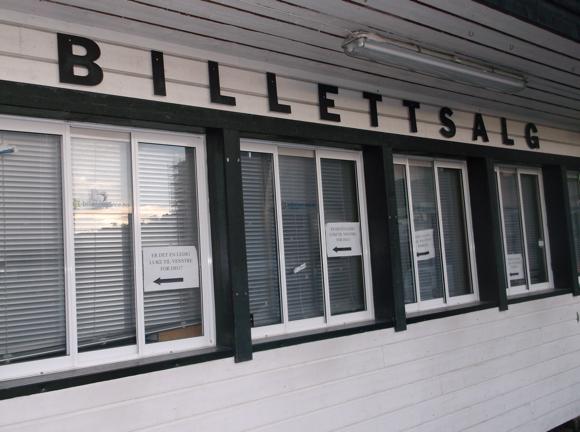
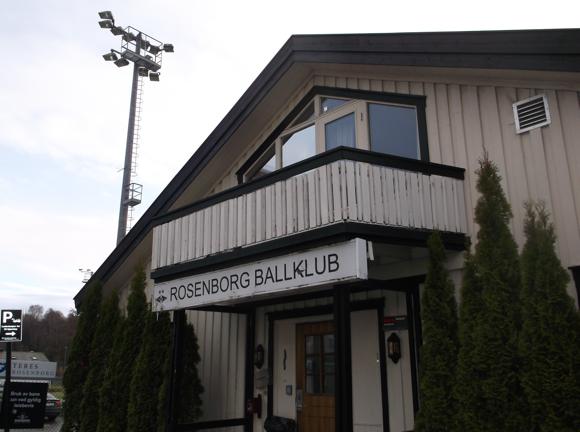

The RBK club shop (Mon-Fri 10am-6pm, Sat 10am-6pm, match days) at the stadium provides advance sales – the outlet is straight ahead as you walk in. In the city centre, the Infoskranken service on the 1st floor of the Trondheim Torg shopping centre (Kongens gate 9, Mon-Fri 9am-8pm, Sat 9am-6pm) and the Visit Trondheim office at Nordre gate 11 (Mon-Sat 9am-6pm summer Sun 9am-6pm), also distribute.
Norwegian Ticketmaster provides online sales in English.
Before kick-off, the ticket windows (Billetluka) open in front of the club shop, though availability for bigger domestic fixtures, particularly against Molde, may be an issue on the day.

The best seats (Gull/Gold) in the sideline Hent and Sparebank 1 Stands are Nkr430, with nearby Svart/Black ones at Nkr370. Hvit/White seats in the corners of the sideline stands and lower row of the Adressa Stand are Nkr240. Home supporters pay Nkr215 in the upper tier of the Adressa.
At the other end, the COOP Stand is given over to families, with its own pricing structure.
Elsewhere, students, seniors and children are charged Nkr280, Nkr235 and Nkr150 for Gold, Black and White tickets respectively.
Prices for matches in earlier European rounds are set at Nrk100-Nkr200.
what to buy
Shirts, kits, merchandise and gifts





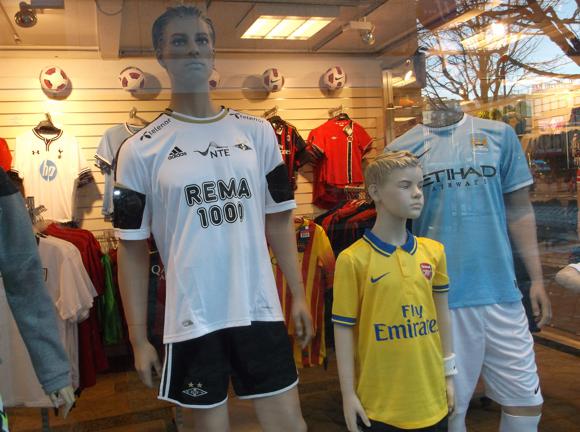


The RBK Shop (Mon-Fri 10am-6pm, Sat 10am-6pm, match days) behind the COOP Family Stand on Odd Iversens vei (off Klaebuveien) carries an extensive range of Rosenborg goodies. Headphones, toothbrushes, rubber balls, towels, drinking flasks and rain ponchos can all be found, the walls decorated with great moments in RBK history.
In the centre of town, Nor-Contact Sport (Mon-Sat 10am-6pm) stocks replica shirts and sundry merchandise from many teams, not only Rosenborg.
Stadium tours
Explore the stadium inside and out

Norwegian-language ground tours are given during the school summer holidays, generally at 2pm on Mondays, Wednesdays and Fridays. Tours start from the RBK Shop and cost Nkr100, Nkr50 for children.
Email rbkshop.no for a specific schedule.
Where to Drink
Pre-match beers for fans and casual visitors
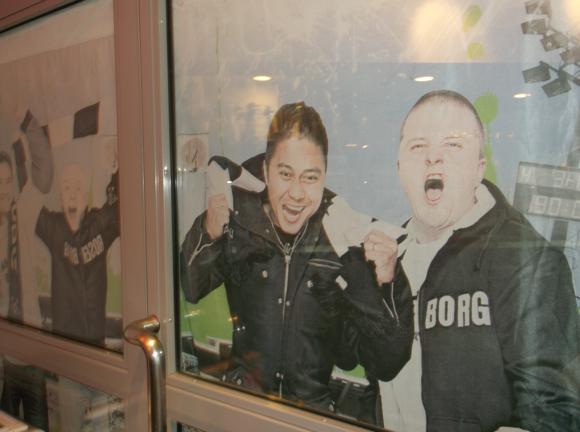

The only bars and restaurants are at the stadium itself.
By the RBK club shop behind the COOP Stand on Klaebuveien, Dolly Dimple’s is a chain pizzeria sympathetically done out with a Rosenborg photo montage. As well as providing kids’ menus (Nkr55) and pizza slices from Nkr48, it offers local Dahls beer. Match-day policy is to serve alcohol before and after the game, but not during. It opens every day of the week from 11am, from noon/1pm on Sat/Sun.
Inside the Upper East (Øvre Øst) section of the Adressa Stand, the match-day Supporterpub fills with Kjernen home fans from three hours before kick-off. It also opens to broadcast selected away matches on its two large screens. Entrance is for over-18 RBK fans only.



On match days, the Familierestaurant also opens on the third floor of the COOP Stand, through gate 23. A standard taco buffet is Nkr185, with mineral water and coffee included. It’s open to all, but there’s no alcohol.
A new concept for domestic fixtures from 2017 is the Fanzone, set up at Nils Arne Eggen plass on Klaebuveien, with family-friendly entertainment, face painting, and food and drinks stalls.


